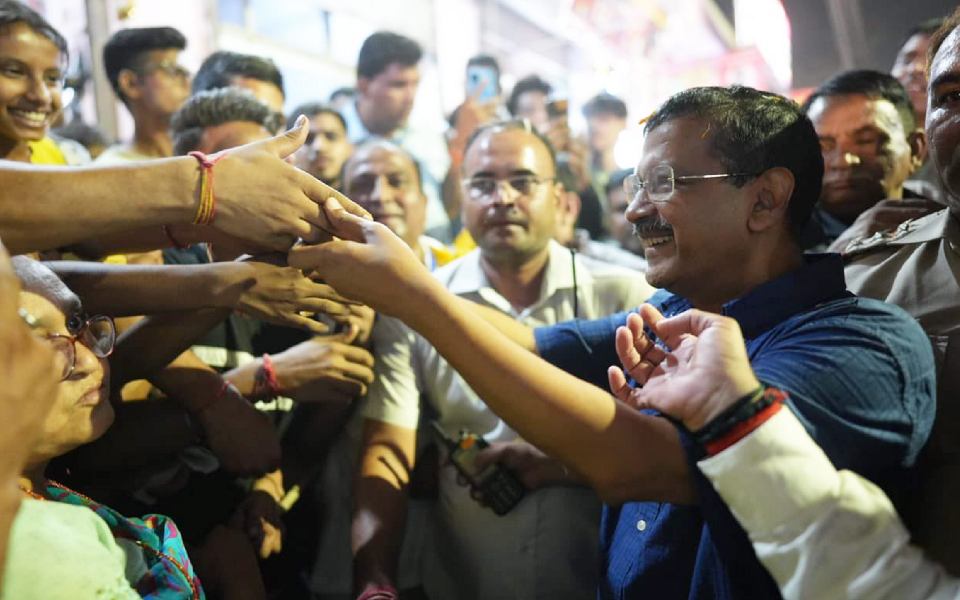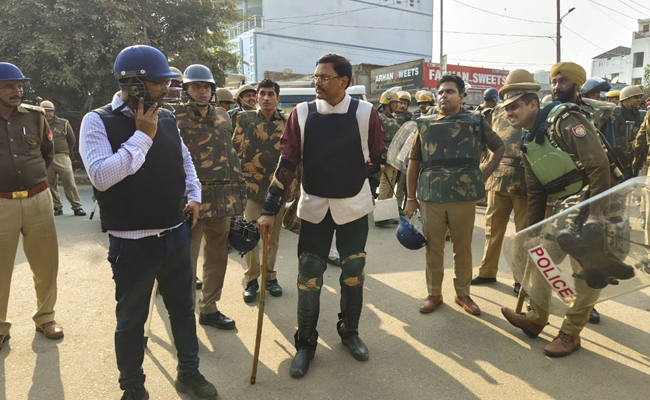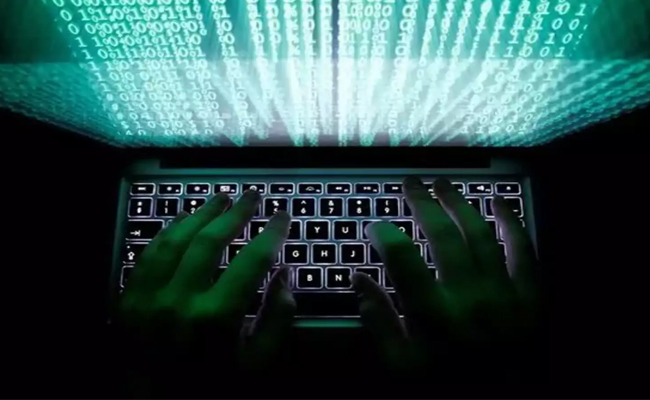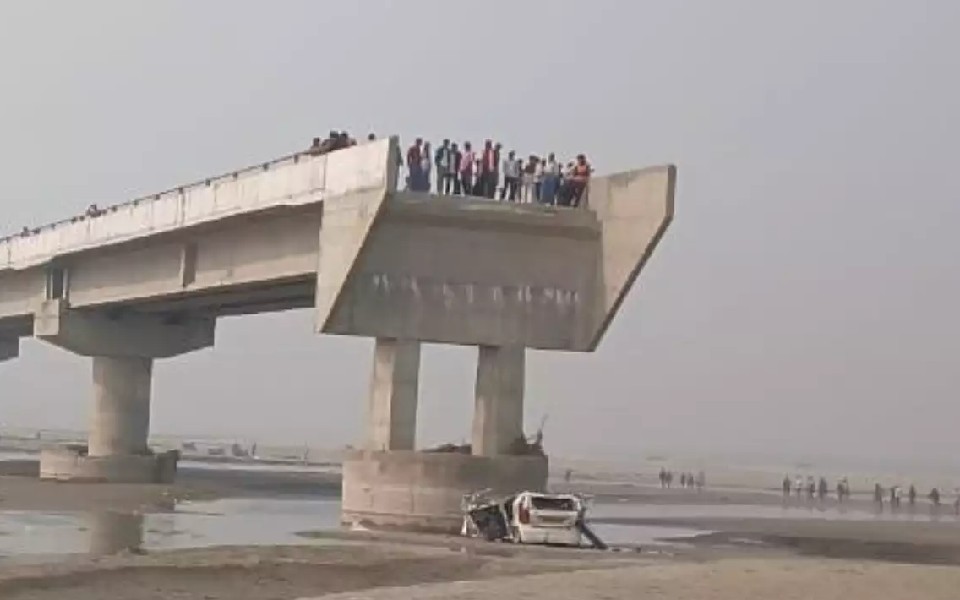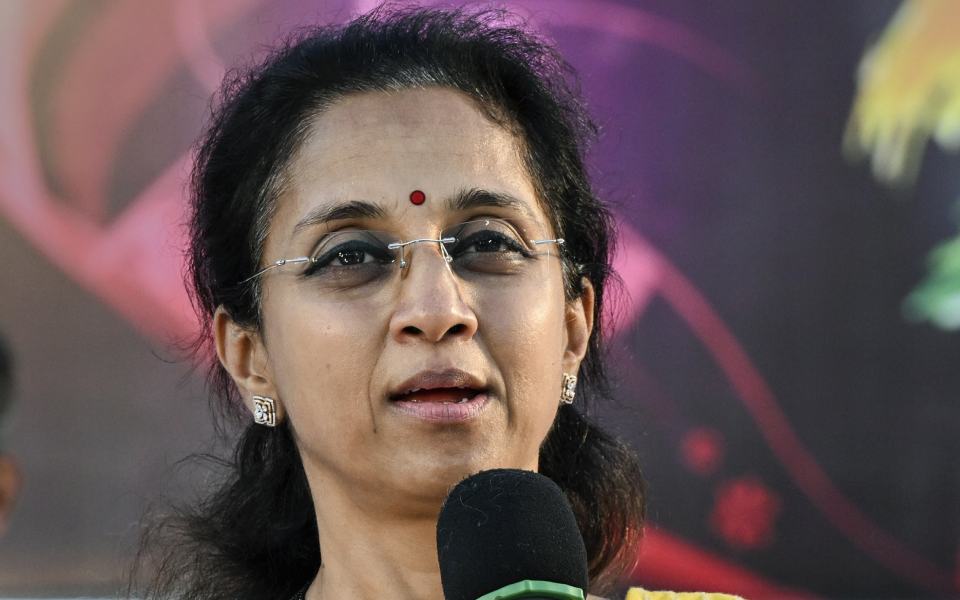New Delhi, Oct 26: The AAP on Saturday alleged the BJP was conspiring to "kill" its convener Arvind Kejriwal and had become "an enemy of his life". The ruling party warned that the BJP would be responsible if anything happened to the former chief minister.
Leader of Opposition in the Delhi Assembly Vijender Gupta dismissed the AAP's allegations, saying it was yet another "drama" by the AAP to defame the BJP ahead of the assembly polls.
The AAP had on Friday claimed that Kejriwal, a Z-plus protectee, was attacked by "BJP goons" during his 'padyatra' (foot march) in west Delhi's Vikaspuri, a charge trashed by the saffron party.
However, no video of the alleged attack was made available by the party. Police said they had not received any official complaint from the AAP.
Addressing a press conference on Saturday, AAP MP Sanjay Singh alleged police were complicit in the incident.
"Police complicity in the incident clearly shows a deep-rooted conspiracy to kill Kejriwal. The BJP has become an enemy of his life," he said.
There was no immediate response from police to the Rajya Sabha MP's claim.
Singh said that despite Friday's incident, Kejriwal would carry on with the 'padyatra' as scheduled.
AAP leaders including Kejriwal are undertaking 'padyatras' in different assembly segments of the city in the run-up to the Delhi Assembly polls, likely to be held in February 2025.
Asked why the AAP had not filed a complaint regarding the alleged attack on Kejriwal, Singh said police could take cognisance of the incident and launch a probe.
It would not have happened if police were impartial. Police officers did not do anything to stop the "attackers" who belonged to the BJP's youth wing, he claimed, adding the AAP was seeking legal opinion on the matter.
He also accused BJP leaders of supporting the "attackers".
Singh said Kejriwal would "neither stop nor bow down" and continue to fight for the people of Delhi.
If anything happens to Kejriwal, then the BJP would be responsible for it. Even if Kejriwal suffers a scratch, Delhi's people would take revenge on the BJP, he said.
At another press conference, Delhi cabinet minister Saurabh Bharadwaj claimed one of the attackers was the vice president of the BJP's Delhi Yuva Morcha.
"BJP Yuva Morcha functionaries attacked Kejriwal. One of the attackers is the vice president of BJP Yuva Morcha of Delhi and the second is the general secretary," he said.
The two BJP leaders, who were dancing after attacking Kejriwal, had lost the councillor elections, claimed Bharadwaj.
BJP leader Gupta rubbished the AAP's claims.
"Despite blaming the BJP, no complaint has been filed by the AAP over the alleged attack on Kejriwal, which shows that the party is trying to play the victim card and gain sympathy by trying to defame the BJP before the assembly polls," he said.
The BJP leader said the AAP is worried about the "waning public support" and is attempting to confuse people through such tactics.
The area where Kejriwal was allegedly attacked is not an AAP stronghold and hence, the party "concocted" the story to gain sympathy, Gupta alleged.
Let the Truth be known. If you read VB and like VB, please be a VB Supporter and Help us deliver the Truth to one and all.
Sambhal (UP) (PTI): The district administration has imposed prohibitory orders and barred the entry of outsiders till November 30 after three men were killed and scores of others, including security and administration personnel, injured in a violence by protesters opposing a court-ordered survey of a Mughal-era mosque.
The order has been issued under provisions of the Bharatiya Nyaya Sanhita (BNS), said District Magistrate Rajender Pensiya late on Sunday.
"No outsiders, other social organisations or public representatives will enter the district border without the permission of the competent officer," said the order, which came into force with immediate effect.
Violation of the order will be punishable under Section 223 (disobedience to order duly promulgated by public servant) of the BNS.
Violence broke out in the district on Sunday as protesters opposing the survey of the Jama Masjid clashed with security personnel. The protesters torched vehicles and pelted the police with stones while the security personnel used tear gas and batons to disperse the mob.
Divisional Commissioner (Moradabad) Aunjaneya Kumar Singh said on Sunday, "Shots were fired by miscreants... the PRO of the superintendent of police suffered a gunshot to the leg, the circle officer was hit by pellets and 15 to 20 security personnel were injured in the violence."
A constable also suffered a serious head injury while the deputy collector fractured his leg.
"Three people, identified as Naeem, Bilal and Nauman, have been killed," Singh said.
Twenty-one people, including two women, have been detained and a probe has been launched, the official had said, adding that those accused in the violence would be booked under the stringent National Security Act (NSA).
District Magistrate Rajender Pensiya said, "The casualty count stands at three. The reason for the deaths of two is clear -- bullet wounds from countrymade pistols. The reason for the death of the third person is not clear but it will be after post-mortem."
Internet services were soon suspended in Sambhal tehsil for 24 hours and the district administration declared a holiday in all schools for Monday.
Tension had been brewing in Sambhal since November 19 when the Jama Masjid was first surveyed on the court's orders following a petition claiming that a Harihar temple had stood at the site.
Trouble started early on Sunday when a large group of people gathered near the mosque and started shouting slogans as the survey team began its work.
District officials said the survey could not be completed on Tuesday and was planned for Sunday to avoid interference with afternoon prayers.
Supreme Court lawyer Vishnu Shankar Jain, who is a petitioner in the case, had earlier said the Court of Civil Judge (Senior Division) ordered the constitution of an "advocate commission" to survey the mosque.
The court has said a report should be filed after conducting a videography and photography survey through the commission, he had said.
On Sunday, Jain urged the Archaeological Survey of India to take control of the "temple".
Gopal Sharma, a local lawyer for the Hindu side, had earlier claimed the temple that once stood at the site was demolished by Mughal Emperor Babur in 1529.

